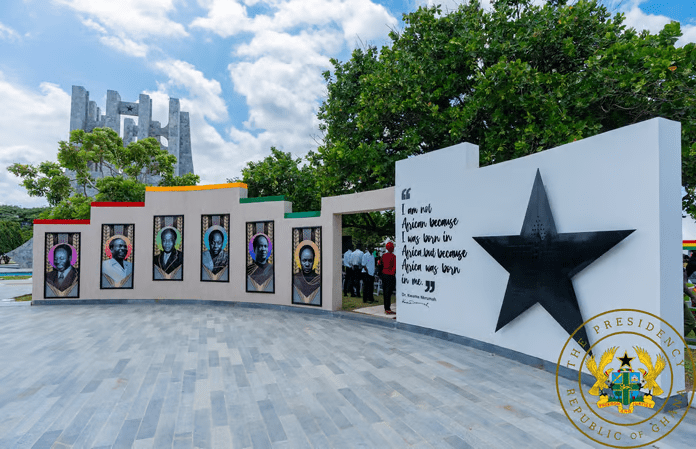
EXPLORING GHANA: THE EXPERIENCE & TRADITIONS
“Strangers can see the good in you even when you do not see it in yourself. They can see the beauty in you even when you cannot see it yourself. They can see the potential in you when you do not realize it”. – Shannon L. Alder
This quote may be a cute trendy quote that just talks about individuals but as a millennial Ghanaian, an encounter with a Lebanese resident in Accra brought a certain deeper appreciation of this quote. It created the awareness that being a Ghanaian is more than just a person but spans across cultures, traditions and the country as a whole.
IDENTIFYING THE GHANAIAN IN ME
It was a Saturday evening, and as always, I wanted to enjoy my favorite Kome ke shito ke kena (Kenkey and shot pepper sauces with fish). On my way to the Kenkey seller I bumped into a stranger, a stranger in the sense that he was not a Ghanaian, he was a Lebanese who strangely greeted me in twi, also known as the Akan language, one of Ghana’s most widely spoken languages. He smiled and greeted me – “Maame, Maakye oo” literally translated as Good Morning Woman. I was taken aback because the timing of his greeting was a little out of place because it was in the evening and not in the morning to be greeted “Good Morning”. Thinking his greeting was going to end his ability to speak twi but no, he proceeded to ask for my name again in twi, which I happily told him just to satisfy my curiosity – “My name is Mary”. Mary? He said in a questionable tone and then responded – Well call me “Kofi”.
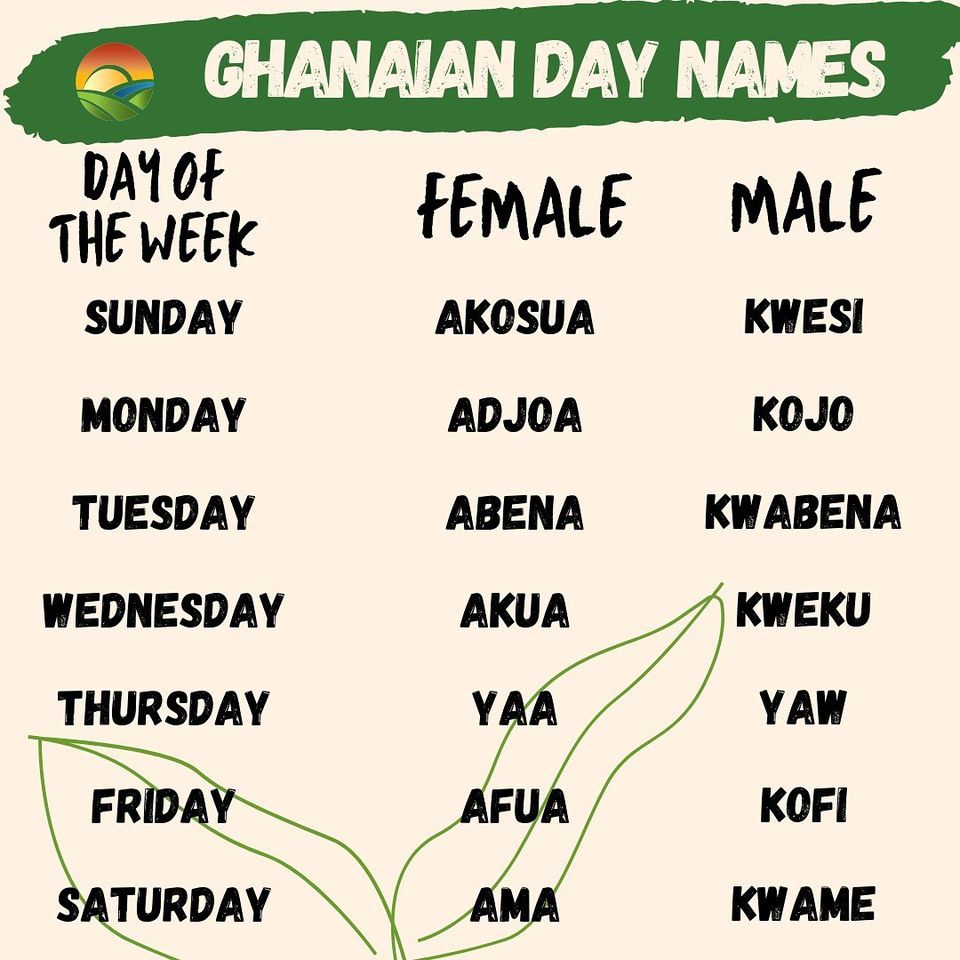
Ghanaians have names based on the day of the week on which they were born. Photo Credit: Landtours Ghana.
He asked “Mary, can I ask you a question?” “Yes, you can” – I responded. Why did you introduce yourself with a non-Ghanaian name instead of your Ghanaian name? I honestly did not know how to answer that. I guess I thought he would relate better with my English name. But he told me “The center of attraction for foreigners to a specific country is the unique culture and traditions that is demonstrated with something as basic as names. Stick to it”.
I reflected on the words of this man and used my journalistic intuition to observe the beauty and fascination of the Ghanaian culture. I realized the look of excitement on the faces of Expatriates as they interacted and got to know our culture. But to the indigenous Ghanaians, this is not something to get so excited about.
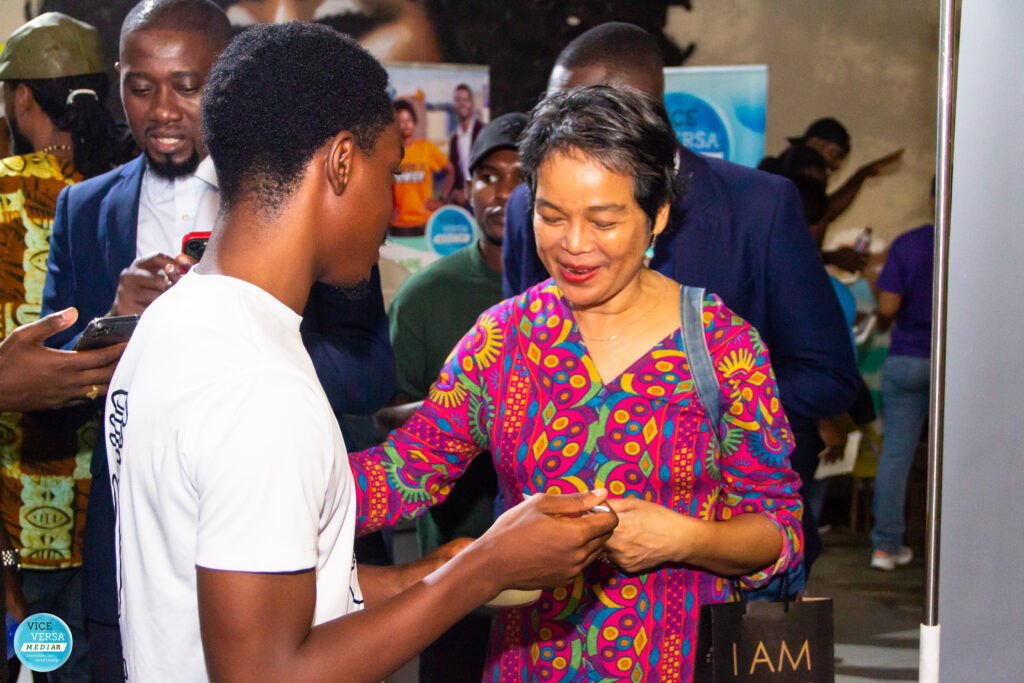
Expatriates excited to interact and to know more about Ghana.
Astonished! – Am I and the people in the country losing the Ghanaian identity? Maybe because of the hustle culture we have no time to value these precious things. We just need a reminder – These thoughts ran through my mind as I tried to come out with something I can do to recount the Ghanaian way of living. I concluded on telling this narrative from a unique perspective, by interviewing an Expatriate who have lived longer in the country and seen its evolvement over time.
UNVEILING THE INTERVIEWEE (MEET MR. AMAR DEEP SINGH HARI)
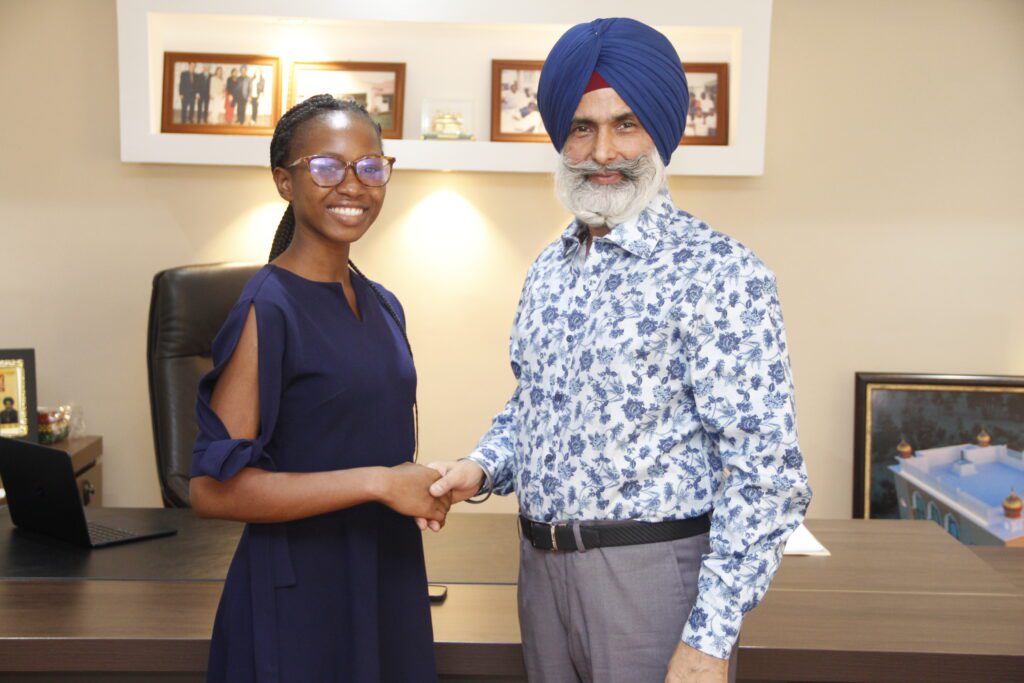
Mr. Amar was excited following his interaction with Journalist Mary Awah.
One Thursday morning at his office, I got the opportunity to engage the Chief Executive Officer and Co-Founder of one of the leading technology company and institute in Ghana, IPMC, Amar Deep Singh Hari. Culturally, he originates from Punjab in India. He settled in Ghana in 1991 to start his life and business afresh after the tragedy that collapsed his business in Liberia due to the civil war that broke out. He returned to his country shortly after as an economic refugee.
A week or two after his marriage at age 23, Mr. Amar received an epiphany. While contemplating on whether or not he should wake up at 4am to say his prayers, he received a dream. He saw the West African map, with a keen focus on Ghana. He memorized the dream and shared it with his older brother who expressed that the times in Ghana was unfavorable. At the time, the basic necessities like toothpaste were not available since Ghanaians used chewing sticks.
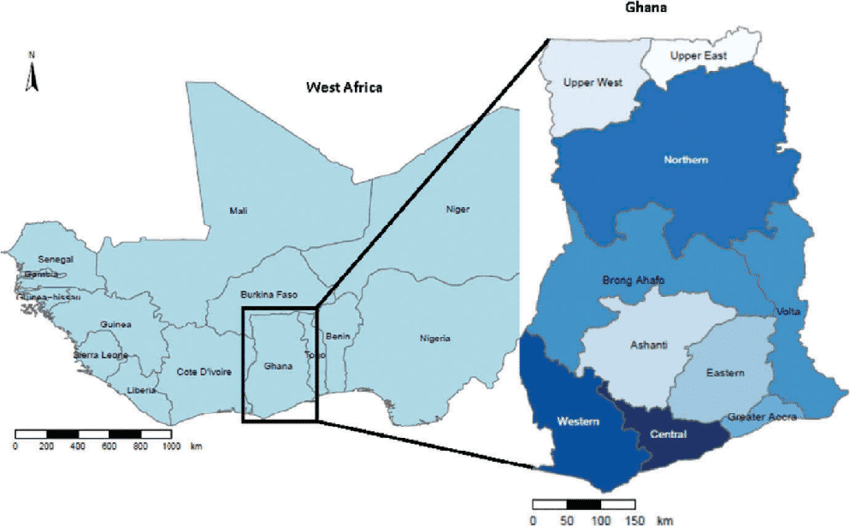
Ghana is located on the west coast of West Africa. Photo Credit: Research gate
Eventually, Mr. Amar’s older brother visited Ghana again. This time, he discovered this new policy instituted by the Ghanaian government, specifically the Ghanaian Investment Promotion Centre (GIPC), to encourage the establishment of IT businesses in the country. “And that was the dream, to assist the Ghanaian economy grow within the digital space”, Mr. Amar stated.
Over the past Thirty-Two (32) years, IPMC has built data centers, developed software and established an IT Training School to empower the Ghanaian youth contribute to the Ghanaian digitization efforts by equipping them with necessary knowledge and skills in IT.
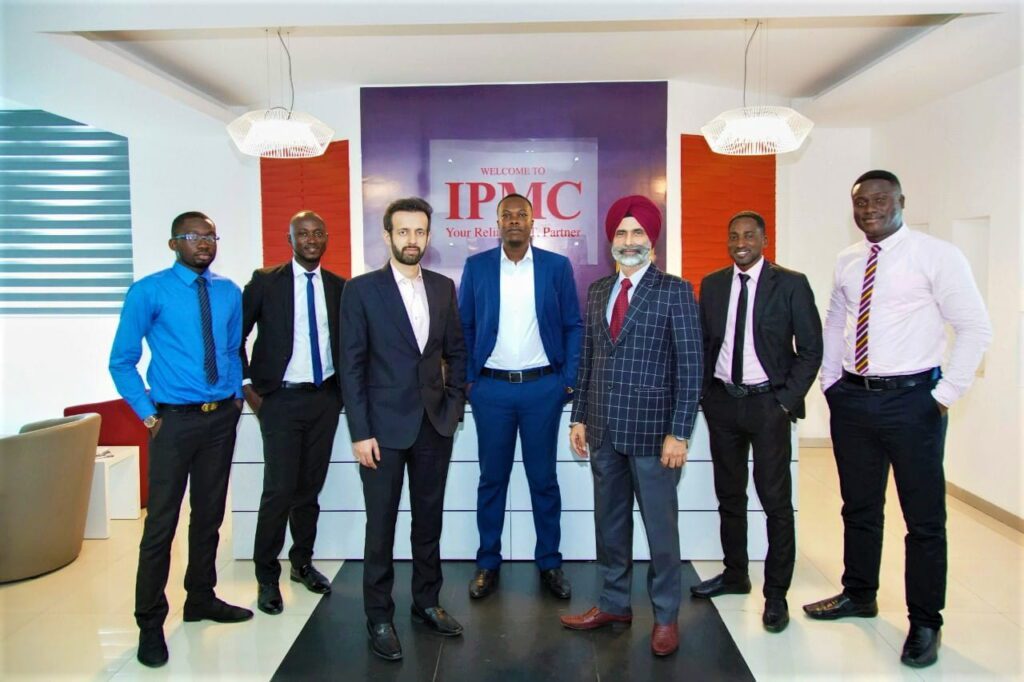
Mr. Amar is the CEO of IPMC, one of the leading IT companies in Ghana. Photo Credit: IPMC Ghana
Now, enough ranting from me. Join me on the couch at Mr. Amar’s office, with a hot beverage in your hand, and listen to him describe his experience in the Ghanaian Society.
Over to you Mr. Amar.
THE GHANAIAN EXPERIENCE
I read research from Quora.com that said, for expatriates, two of the best cities in Africa to live in is: one (1) Cape Town – South Africa and two (2) Accra – Ghana. I believe in the coming years; Accra will be the number one. It is evident over the past years, the transitions this country has gone through from its real estates to the ‘Trotro’ stations (What Ghanaians call bus stations), their road infrastructure, banking and telecommunications, Ghana is getting advanced but the experience of living in this country is surreal.
The policies put in place by the Ghanaian Tourism Authorities shows how much it values both foreigner and indigenes. I can talk about the diverse cuisines and not just the Ghanaian cuisines. Now, there are so many foreign restaurants that even Ghanaians go to, to have a taste of our meals.
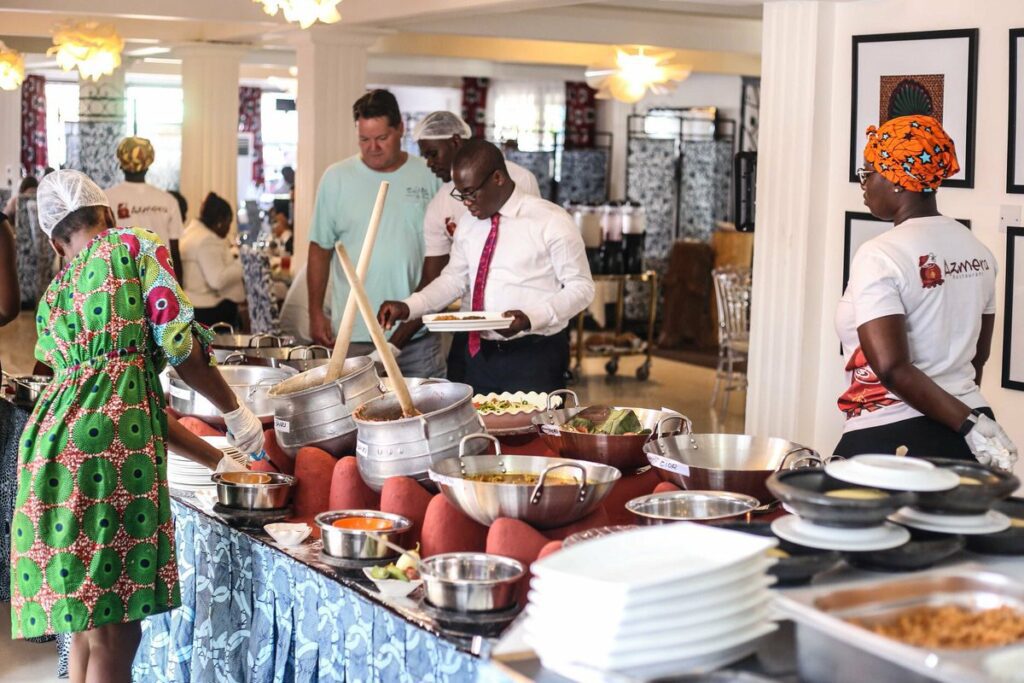
Foreigners and natives alike are enjoying traditional Ghanaian cuisine. Photo Credit: Coupons Ghana
There is also this fact of celebrating something or an occasion every weekend. I mean you visit any restaurant or hotel, and they are very busy. From handling bookings for birthdays, weddings and parties plus other religious meetings: the social life here in Ghana is one of the best and this makes living in Accra joyful.
But the most precious experience expatriates enjoy here in Ghana is the Peace. One of the most mature signs of any civilization is giving a level of love, care and respect to individuals. Giving people the opportunities to express where they differ in a civilized way, through proper language is where I believe Ghana leads the world. I mean this country is comprised with sixteen (16) regions. All with different languages, way of living, customs and traditions: yet look at how civilized Ghanaians are living. When was the last time you heard of Tribal wars in this country. It does not happen. Why? Ghanaians find the middle ground.

Ghanaians believe in projecting its culture and traditions. Photo Credit: Pinterest
Look at how they have passed on democratic rule from one Political Party to another, very peacefully. Watch the news, check their crime rates. This is evident by the level of Family Support System within the country. When Ghanaians receive their brethren from the nearby or far villages, they make sure they are well taken care of. This is something they should take pride in.
I remember this experience of visiting Ghanaians during their mealtime. The very first thing they tell you is “You are invited. Come wash your hands and let us eat together”. In a world where everybody lives in survival mode coupled with greed, where do you find this kind hospitality? The more I interacted with this society, I began to see that these acts of hospitality is not just taught but instilled by the elders of the society. They have this discipline of open heartedly welcoming your visitors, regardless of who you are. And this is demonstrated in every part of this country. From their homes to their workplaces, Ghanaians just genuinely show a level of warmth. Thus, making expatriates very comfortable living and excelling in this country.
THE GHANAIAN TRADITION
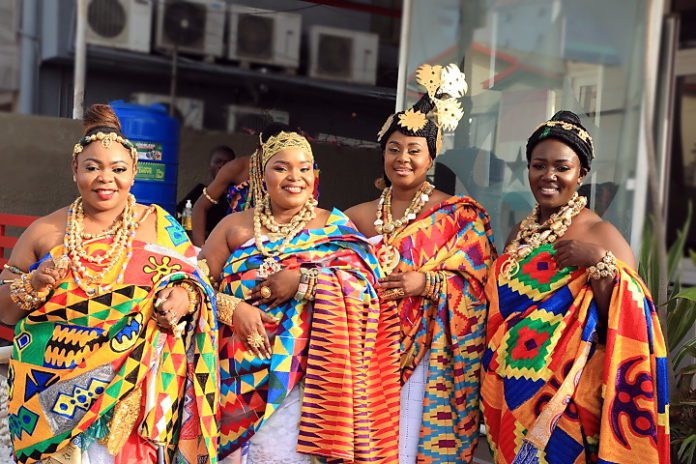
The Kente cloth symbolizes power, wealth and identity. Photo Credit: Adomonline
When I decided to visit Ghana, I initially held the assumption that it would be akin to other African countries I had experienced. However, from the moment I stepped foot in the country, my preconceptions were swiftly overturned.
Arriving at the airport, I was immediately struck by the warmth and receptiveness of the Ghanaian people. Their genuine hospitality and friendliness created an atmosphere that surpassed any expectations I had. Even the efficiency of the security procedures left a positive impression, demonstrating a commitment to both safety and visitor satisfaction.
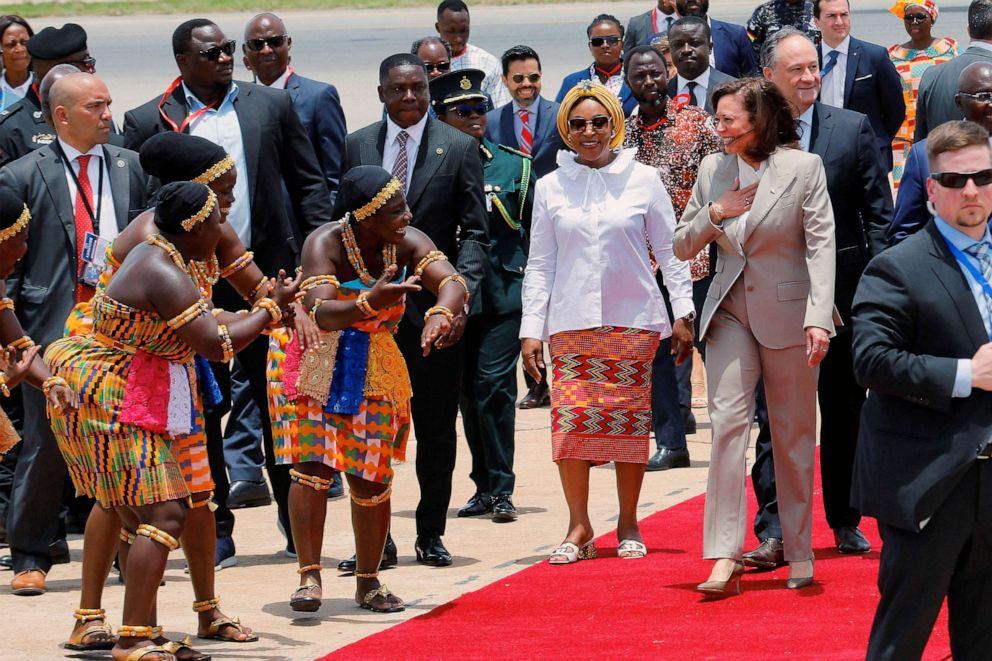
“Akwaaba” serves as a welcoming expression within the Ghanaian community. Photo Credit: ABC News
As I began to immerse myself in Ghanaian culture, one word stood out to me: “Akwaaba!” This simple yet powerful greeting, meaning “welcome” in the local Twi language, became not only a linguistic discovery but also a symbol of the inclusive spirit that defines Ghanaian interactions. It quickly became my go-to greeting among Ghanaian friends, fostering a sense of camaraderie and connection wherever I went.
Let me share my observations and experience with Ghanaian courtesies. They are combined with a level of discipline. We all know that it is a courtesy in the world that when you visit someone or attend a durbar, one must pay respects to the owners. Ghanaians, they do this with a discipline. For Ghanaians, they start shaking hands and paying respects from the right. Who sits at the right you ask? The Elders. I think this stems from the custom of pouring libation which signifies paying respect to God. Now to truly understand this, you need to answer this question: Who did God use to create you and me? Our parent of course. God used your mom and dad to create you and that is the foundation for this discipline.
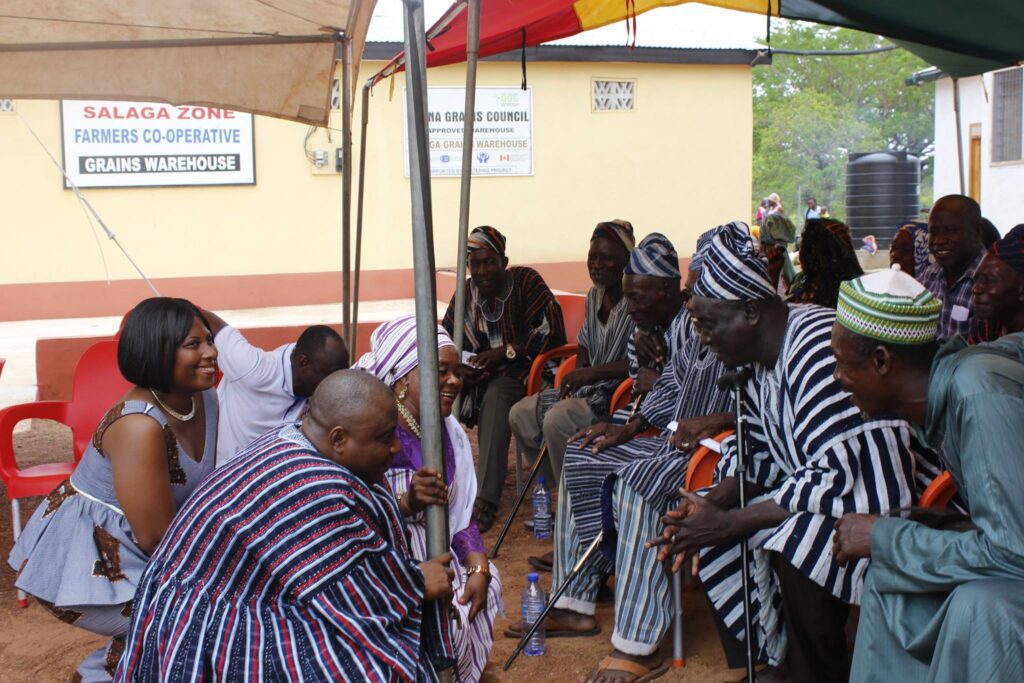
To honor a Chief, it is customary to bow as a gesture of humility and respect. Photo Credit: Send Ghana
The first thing a Ghanaian, regardless of their tribe, remembers in their culture is to pay respects to their Elders. To me, this is a sign of an advanced society.
THE GHANAIAN SPIRIT
1. Preserving the culture.
Any country who protects their traditions and cultures, has to be successful because they are preserving the rich knowledge and wisdom of the past. And I have seen this with Ghana over the years. The spirit of going a long way to uphold the wisdoms and disciplines of their Elders. They do this with such a unique creativity. This is evident from the creation of the “Adinkra” symbols by the Bono people.
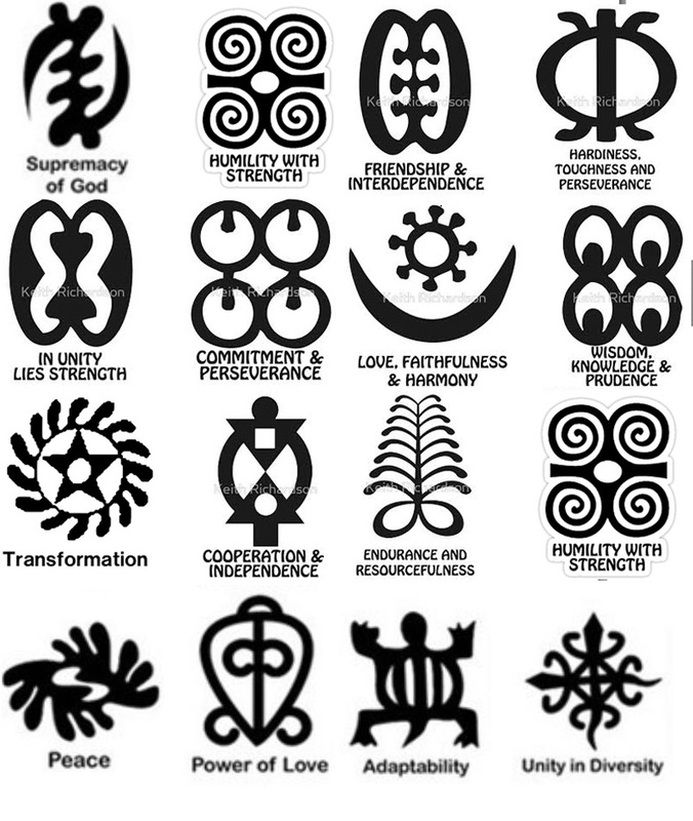
The Adinkra symbols are ways of communicating with arts. Photo Credit: Pinterest
Look at the kind wisdom incorporated in the Adinkra symbols. It makes you want to salute the people who thought about drawing these symbols and decided what to denote them for. I will urge you to really look into the proverbs of these symbols. Ghanaians incorporate these symbols in their daily living.
The Adinkra symbols is one knowledge bank of wisdom which the entire world is yet to see. Preserving the knowledge of the past in form of such symbols will truly live forever.
2. Education
Now, let me touch briefly on this Ghanaian Spirit of pursuing education. This is unique because it comes from their heart.
Sure, I believe in every one’s basic education days parents will have to force their children to go to school but when they reach high school level, you find most Ghanaians fighting to pursue higher education. Because they want to empower themselves with the knowledge from education.
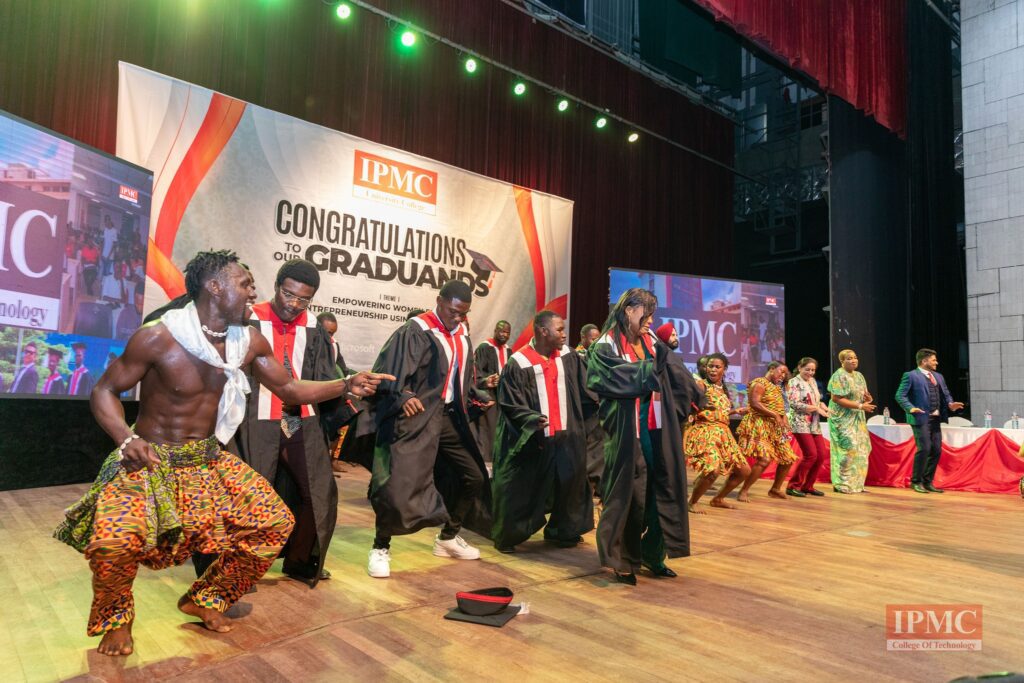
Ghanaian Youth championing the spirit of IT Education. Photo Credit: IPMC GHANA.
I must say that the country is also working hard at implementing the UN SDG Goal 4 – Quality Education. There is a rise of producing and training Qualified Teachers while instituting TVET programs across primary education through to the University level. You also find foreigners applying for Higher Education in the country because it is affordable here.
The formula of making a country successful by pursuing Peace and Education can never go wrong.
LEAVING REMARKS.
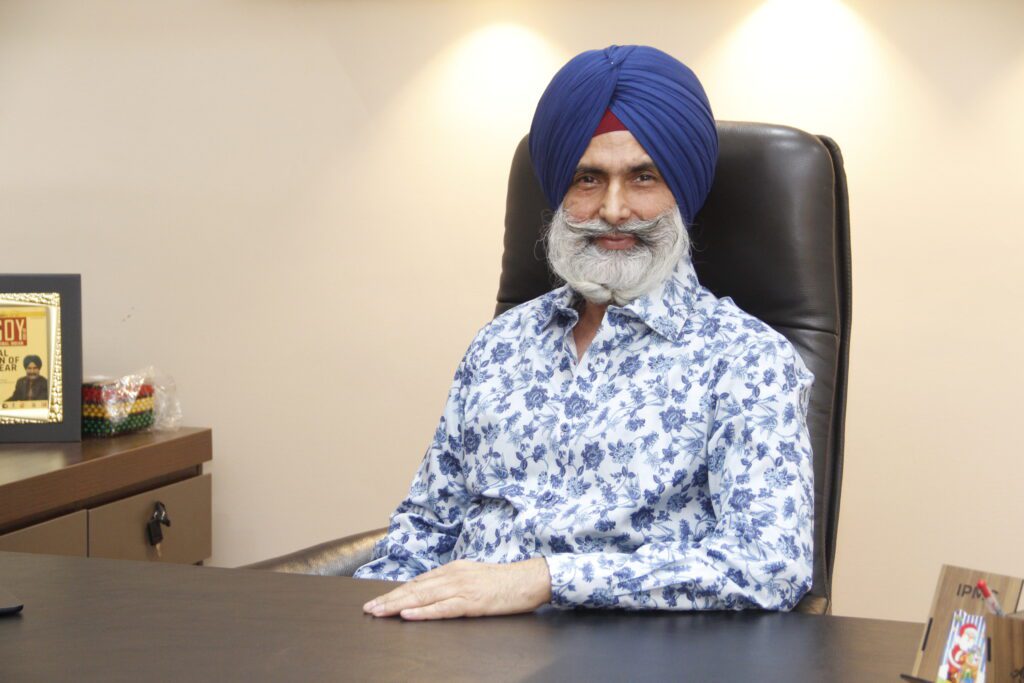
Mr. Amar has resided in the country for over Three Decades.
As we celebrate the independence of Ghana in the month of March, let me say that the real independence comes from self-empowerment. It is important for Ghana, this land filled with wonderful natural resources, to locally process these natural resources and share it with the rest of the world, instead of primarily exporting them. I love the efforts made by the government to establish more processing factories within the country.

Ghana is blessed with lots of Natural resources. Photo Credit: Yen News.
But it will give me so much joy to see young people putting up ideas and Agro-processing factories here in Ghana. The raw materials like Shea butter, cocoa, bauxite and gold are already here. But to make this a more fruitful country, I want young people, using their knowledge to set up the best manufacturing industries the world is yet to see.
I truly believe you can do it.
“Thank you for such an inspiring time, Mr. Amar.” I said.
“You are Welcome, Mary.” Mr. Amar responded.
CONCLUSION
This was an inspiring time. I mean I loved how Mr. Amar projected the simplest customs that quite frankly I have grown accustomed to. So much so that I would not look at it like a treasure to behold.
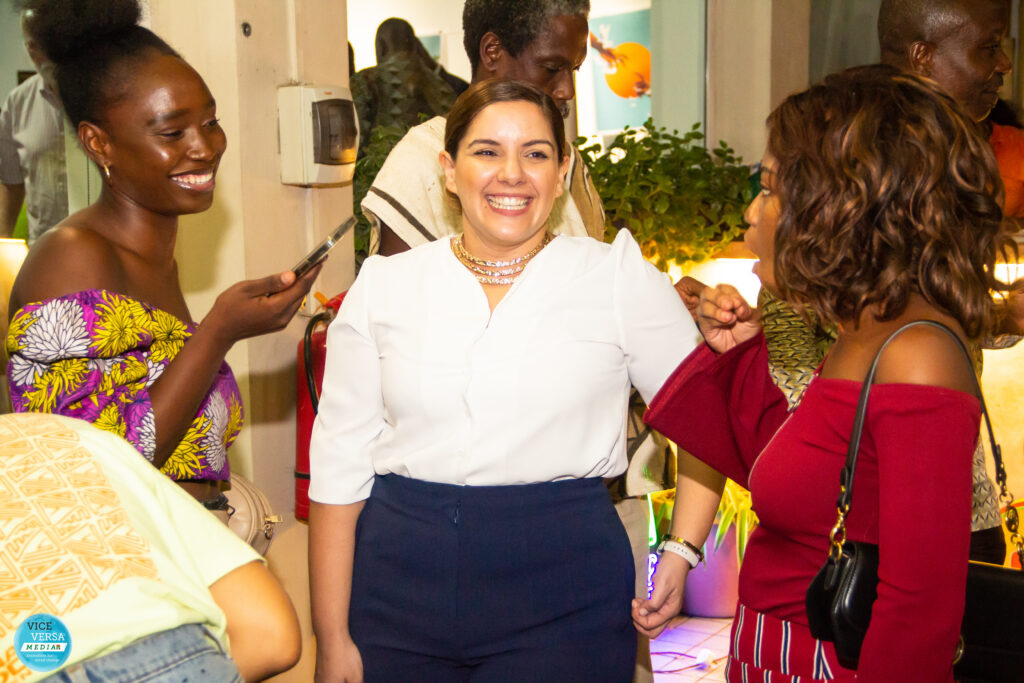
Ghanaians accept all cultures and traditions.
For a while now I have been thinking about the UN SDG Goal 11 which is Sustainable Cities and Communities. I have been looking at how I can play a small part to promote it here in Ghana. Through this conversation I have discerned that the way to do it is to promote more of my culture. I am committed to this, and I hope you are too.

Leave a Reply